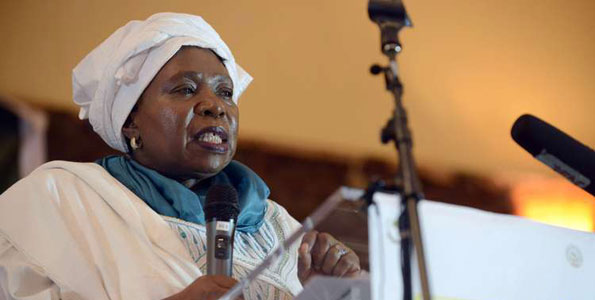$3.8bn to help stem migration from Africa

A summit in Malta on Wednesday said the European Union leaders would make the offer to their African counterparts in exchange for help in tackling the migration crisis.
The rare gathering of around 50 leaders from the two continents was the newest prong in the European Union’s quest for a joint strategy to deal with the biggest flow of refugees and migrants since World War II.
It came as Slovenia became the latest EU member to act on its own by barricading its border, a move that again underlined the divisions within the bloc over how to respond to the crisis.
The Balkan state’s army began on Wednesday rolling out razor wire along the border with Croatia.
After Hungary sealed its borders last month, Slovenia found itself on the main Balkans route for the thousands of migrants who are landing in Greece every day after braving the short but dangerous sea crossing from Turkey.
Oppose fences
Bureaucrats in Brussels, who pushed for the summit in Malta, oppose fences because they argue they simply redirect the flow of migrants and undermine efforts for a joint solution.
The EU is offering up to $3.8 billion to persuade African leaders to take back more economic migrants, a step many African countries were reluctant to take for fear of losing the billions of dollars in remittances sent home by people working abroad.
European nations aim to boost cooperation with African countries to protect refugees, send home irregular migrants and stop those who smuggle them, while offering Africans expanded legal channels of migration.
“This summit is about action,” European Council President Donald Tusk told summit hosts Malta late Tuesday.
African Union chief Nkosazana Dlamini-Zuma, who will attend the summit, “will speak on the way Africa and Europe can partner and work collaboratively to reap the benefits of labour migration as well as on ways to overcome the challenges around irregular migration in the immediate, medium and long terms,” according to an EU statement.
Poverty and conflict
As a carrot, the European Commission, the 28-nation EU’s executive arm, is setting up $1.9-billion “trust fund” for Africa and has urged member states to match that sum — although European sources said it was not sure that they would.
The money would go towards tackling the root causes of migration like poverty and conflict.
“This new fund will help us working together to offer the people of Africa a better future at a time when young Africans often have a choice between unemployment or radicalisation,” Mr Tusk added.
Progress on the main thrust of the EU’s current migrant strategy — fostering cooperation with Turkey — will be discussed when EU leaders meet without the Africans on Thursday in Valetta.
Turkey has surpassed North Africa as the main launching point for migrants coming to Europe, and currently hosts two million Syrian refugees.
A lawless Libya
But tensions with Ankara have undermined efforts to get it to crack down on the huge numbers leaving its shores, many of whom have drowned.
At least 14 people, including seven children, drowned on Wednesday when a migrant boat sank off Turkey’s Aegean coast while trying to reach Greece, local media reported.
The EU-Africa summit was first called months ago when the Mediterranean route from a lawless Libya was still the main springboard for migrants travelling to the EU in battered fishing boats and flimsy dinghies.
Nearly 800 migrants died in a single shipwreck off the Libyan coast in April.
Amnesty International’s Iverna McGowan raised fears that the summit would reinforce the idea of a “Fortress Europe,” telling AFP the the approach “can lead to an outsourcing of human rights abuses and is quite worrying.”
Invited to the meeting are leaders from more than 30 African countries, including Libya as well as Eritrea, Ethiopia, Somalia, South Sudan and Sudan, the sources of many people fleeing conflict and repression.
Africa accounts for just under a quarter of the nearly 800,000 migrants who have reached Europe this year.
The EastAfrican